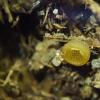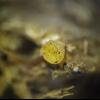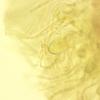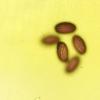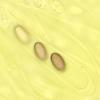
05-03-2026 10:07
Hulda Caroline HolteHello, I found and collected this species growing

05-03-2026 16:30
François BartholomeeusenDear forum members, On the 2nd of February 2026,

19-02-2026 17:49
Salvador Emilio JoseHola buenas tardes!! Necesito ayuda para la ident

03-03-2026 20:34
 Miguel Ángel Ribes
Miguel Ángel Ribes
Good eveningThese small, amphora-shaped perithecia

01-03-2026 18:02
 Francois Guay
Francois Guay
I found this mystery Helotiales on an incubated le

28-02-2026 14:43
A new refrence desired :Svanidze, T.V. (1984) Novy
 Hello,
Hello,I found this Ascobolus on horse dung yesterday. At first I thought of A. stercorarius, but the spores are smaller. Following the key of Yi-Jian Yao I end up at nr 20: there the choice is between A. michaudii or A. perplexans.
Sporesize: (17,8) 19-23 x 10,4-11,3. If I'm correct, I see 7–12 longitudinal fine crevices. I also see a very very light blue reaction in Meltzer on young asci (I had to really search for it).
Am I right in thinking it is A. perplexans?
Thanks already!
Maria

A.michaudii with smaller spores and less streaking on the surface.
On the other hand, it is more difficult to separate A.perplexans from furfuraceus. You can check the average size of the spores (in my opinion smaller in perplexans), and the structure of the exipulum, but the weak reaction of the wall of the asci makes it close to perplexans.
Michel.

Thank you for your reaction!
The spores are indeed smaller than A. furfuraceus, so I ruled that one out. Deciding between A. michaudii or A. perplexans was/is more complicated.. Between those two the sporemeisures are not that different: my smallest was 17,8, but all the rest was from 19 to 23.
I am absolutely not familiar with Ascobolus, so I find it also a bit difficult to say how many "lines" I see on the spores :).
On the other hand: I tried several specimens, but in none of them I saw a clear blue reaction in Meltzer...
Do you think that, because of that very weak reaction in Meltzer, I can assume it's A. perplexans or should it stay unsure?
Maria

The weak reaction is one of the main criteria to separate these two species and if as you say the reaction is very weak (on young asci), A.perplexans corresponds.
Michel.

Maria

